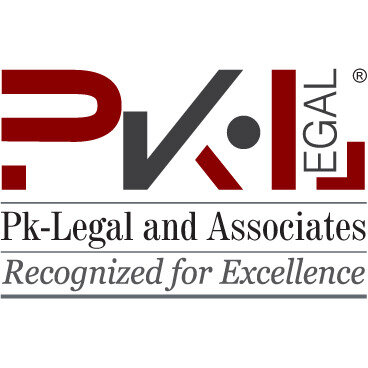Best Estate Planning Lawyers in Pakistan
Share your needs with us, get contacted by law firms.
Free. Takes 2 min.
Or refine your search by selecting a city:
List of the best lawyers in Pakistan
About Estate Planning Law in Pakistan
Estate planning in Pakistan involves arranging the management and disposal of an individual's estate during their life and after death. This legal process ensures that assets are distributed according to the individual's wishes and minimizes taxes or legal complications. The primary legal instruments for estate planning in Pakistan include wills, trusts, and gifts. Estate planning ensures the smooth transition of wealth by addressing family dynamics and financial management. The Islamic laws of inheritance, outlined in the Quran and Hadith, play a significant role in estate planning, particularly for Muslim citizens.
Why You May Need a Lawyer
Engaging a lawyer for estate planning in Pakistan is crucial for various reasons. Firstly, the legal landscape is complex, and an attorney can navigate the intricacies of Islamic inheritance laws alongside civil laws. Secondly, a lawyer can assist in drafting a valid will, ensuring that it meets all legal requirements and truly reflects the person’s intentions. Thirdly, if there are assets in multiple jurisdictions, professional legal advice can handle cross-border issues. Additionally, lawyers help in creating trusts, managing estate taxes, and resolving family disputes over inheritance. Lastly, they provide strategies to protect assets from potential creditors.
Local Laws Overview
The laws governing estate planning in Pakistan are a blend of statutory law and personal religious laws. For Muslims, estate distribution is governed by Islamic Sharia, predominantly outlined in the Muslim Family Laws Ordinance, 1961. The Law of Inheritance specifies fixed shares for heirs, which cannot be overridden by a will. Non-Muslims are subject to different inheritance laws allowing more flexibility in their wills. The Transfer of Property Act 1882, Succession Act 1925, and Registration Act 1908 are the principal statutes central to estate planning. It's crucial to comply with both state and religious provisions when planning an estate.
Frequently Asked Questions
What is the importance of having a will in Pakistan?
In Pakistan, a will is a crucial document that allows you to outline the distribution of your assets. It helps prevent family disputes, ensures your wishes are honored, and provides clarity on asset division according to your choice.
Can a will in Pakistan be contested?
Yes, a will can be contested on various grounds such as lack of testamentary capacity, undue influence, or if it was not executed in compliance with legal requirements. Engaging a lawyer can help defend or contest a will effectively.
What is an Islamic will?
An Islamic will, or Wasiyyah, is a legal document through which a Muslim can bequeath up to one-third of their estate to beneficiaries who are not fixed heirs under Islamic law. The remaining two-thirds must adhere to Islamic inheritance laws.
Do non-Muslims in Pakistan follow different estate laws?
Yes, non-Muslims in Pakistan are governed by the Succession Act 1925, which offers more autonomy compared to Islamic inheritance laws, allowing more flexibility in the bequeathing process.
How are properties distributed according to Islamic law?
Under Islamic law, specific shares are predetermined for heirs like spouses, children, and parents. The division is based on Qur'anic principles and leaves little room for alteration by a will.
What is a trust, and why might it be useful?
A trust is a fiduciary relationship where one party holds property for the benefit of another. Trusts can help manage estates, reduce taxes, and ensure assets are used for intended purposes especially when beneficiaries are minors.
What steps should I take to prepare a will?
To prepare a will, list all assets, decide on heirs, choose an executor, and consult a lawyer to draft the document. It must be signed and witnessed appropriately to be valid.
How can a lawyer help in resolving inheritance disputes?
A lawyer can assist in mediating disputes among heirs, interpreting will and trust documents, and represent involved parties in court if required, ensuring a fair and legal resolution.
What is the role of an executor in estate planning?
An executor administers the deceased's estate, ensuring debts and taxes are paid, and assets are distributed according to the will. Choosing a trustworthy and competent executor is critical for smooth estate management.
Is estate planning only for the wealthy?
No, estate planning is important for anyone who wishes to ensure their assets, however small, are managed and distributed according to their wishes, protect their legacy, and provide for their loved ones.
Additional Resources
For further guidance on estate planning in Pakistan, consider consulting the Ministry of Law and Justice for legal frameworks or the State Bank of Pakistan for financial regulations. Non-governmental organizations like the Pakistan Centre for Philanthropy offer information on trusts and charitable donations. Legal aid bodies and law firms can also provide personalized legal guidance.
Next Steps
To proceed with estate planning, consider scheduling a consultation with a lawyer specializing in estate law. Gather necessary documents such as asset records, previous wills, and personal identification. Be clear about your intentions for your estate to ensure all legal documents accurately embody your wishes. Regularly review and update your estate plan to reflect any changes in assets, beneficiaries, or relevant laws. Taking these steps early ensures a smooth, clear process for you and your heirs.
Lawzana helps you find the best lawyers and law firms in Pakistan through a curated and pre-screened list of qualified legal professionals. Our platform offers rankings and detailed profiles of attorneys and law firms, allowing you to compare based on practice areas, including Estate Planning, experience, and client feedback.
Each profile includes a description of the firm's areas of practice, client reviews, team members and partners, year of establishment, spoken languages, office locations, contact information, social media presence, and any published articles or resources. Most firms on our platform speak English and are experienced in both local and international legal matters.
Get a quote from top-rated law firms in Pakistan — quickly, securely, and without unnecessary hassle.
Disclaimer:
The information provided on this page is for general informational purposes only and does not constitute legal advice. While we strive to ensure the accuracy and relevance of the content, legal information may change over time, and interpretations of the law can vary. You should always consult with a qualified legal professional for advice specific to your situation.
We disclaim all liability for actions taken or not taken based on the content of this page. If you believe any information is incorrect or outdated, please contact us, and we will review and update it where appropriate.
Browse estate planning law firms by city in Pakistan
Refine your search by selecting a city.

















